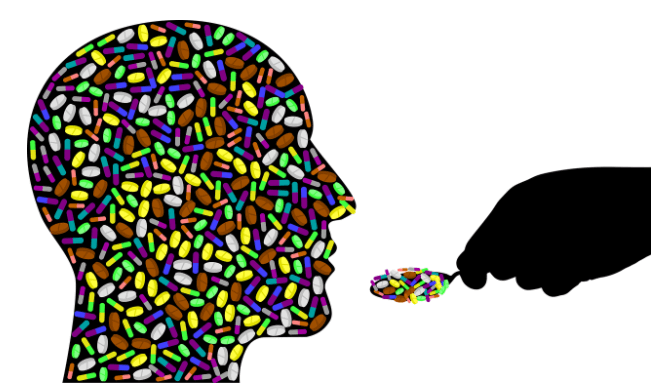It is no secret that we are battling an opioid epidemic in the country. People have started abusing prescription opioids in record numbers, and substance abuse-related deaths are reaching higher each day.
Opioids can be helpful to help with certain medical conditions, but they were never designed for continuous and prolonged use. There is no reason to continue taking opioids beyond a certain point when you can use non-opioid medicines and therapy to treat the problem.
As the problem continues to grow, it is becoming increasingly important to equip yourself with the right information about opioids and substance abuse. Unfortunately, there are many myths surrounding opioid addiction floating around on the internet. Separating fact from fiction is critical to make sure that you know how to care for your loved ones and yourself and get the right protection against the opioid epidemic.
Myths About Opioid Addiction & The Facts Behind Them
Here are some of the most common myths about opioid addiction and the facts behind them to separate fact from fiction.
Myth: Opioids are just stronger versions of over-the-counter painkillers
Fact: Many people often confuse opioids with other pain relief medicines like ibuprofen, acetaminophen, and other medicines you can buy off the shelf at any local pharmacy. While both over-the-counter drugs and opioids can help fight off pain, they work in very different ways to relieve pain.
An opioid drug binds to receptors in the brain, acting on your nervous system to change your perception of pain and give you relief. Non-opioids do not interact with your nervous system to give you the perception of pain relief. These medications block natural chemicals in your body associated with pain or reduce inflammation to provide pain relief.
Myth: If you’re careful enough, you can avoid opioid addiction
Fact: Opioids can require continuously increasing doses as you develop a tolerance level for them. It means that the dose you took to relieve your pain a few weeks ago will not be as effective with continued use. You might need more of the drug to get the same pain relief.
No matter how careful you are with using opioids, prolonged use can lead to your body becoming physically dependent on them. If you have opioids in your system for long enough, your body can experience withdrawal symptoms when you stop taking them.
Myth: Opioids are the only way to treat severe pain
Fact: Opioids are one of the most effective ways to provide immediate pain relief in circumstances where regular pain relief medication is not effective. However, medical professionals have found over-the-counter medicines in the right combinations to be as effective as an opioid for pain relief.
The CDC has written guidelines for medical professionals to reduce the amount of opioid prescriptions they write. Ideally, it is better to begin with a combination of over-the-counter drugs to provide pain relief. If they do not work, opioids can be prescribed for short-term pain relief in minute doses.
Myth: Everybody is at an equal risk of becoming addicted to opioids
Fact: Certain individuals are more susceptible to developing opioid addiction than others. Patients between the ages of 12 and 18 years are more prone to the addictive properties of opioids, and a fifth of the group might require as little as one does to begin a path that leads to addiction.
It is surprising for many people that the path to opioid addiction can begin with the first dose. However, it is completely understandable. Suppose that you have been suffering from a chronic pain problem for a long time, and over-the-counter drugs have been good but not been very effective.
If you take a dose of an opioid drug for that problem, you may experience a “wow” moment because of its effectiveness. Many patients might seek to take the opioid beyond what is necessary for their pain because of its effects. It is difficult to identify who might be at risk of developing an addiction, which is why it is crucial for doctors to be conservative when they prescribe these drugs and be very vigilant about when their patients use them.
Myth: It isn’t acceptable to ask for alternatives about your opioid prescription
Fact: The medical community used to prescribe opioids more frequently in the past because of a lack of better alternatives. Additionally, there was no opioid epidemic to deal with at the time. Medical professionals are encouraged to be conservative about prescribing opioid drugs for treatment.
If an opioid is absolutely necessary, in your doctor’s opinion, then the lowest dose for the shortest time is highly recommended. If you are concerned about your doctor prescribing you an opioid drug for pain relief, you should ask them if it is absolutely necessary.
It is completely alright to ask them if there is an alternative medication or even therapy that can be as effective as an opioid. Asking your doctor about the necessity of the opioid and asking for any alternatives could be a wise decision. There is a chance that they may be able to recommend a different treatment course if you are concerned about opioid addiction.
Is Someone You Know Suffering from Opioid Addiction?
Opioid addiction is a disease that can take hold of a person and distort their moral values. If a person suffering from substance abuse disorder does not get the right help from the disease, it can gradually lead to severe problems and even death.
Do you know someone who is going through addiction and requires treatment? Are you struggling to support your loved ones recover from opioid addiction? Beat Addiction offers a medication-assisted treatment program that can make the road to recovery a little easier traveled. Explore the treatment to learn more.

